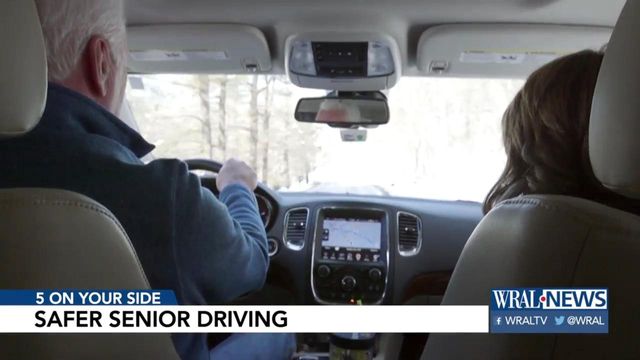Ways to keep aging drivers safe--and how to know when to stop
As seniors begin to show signs of aging, many are reluctant to hang up their car keys--many don't want to talk or think about the day they can no longer drive.
Posted — UpdatedAs seniors begin to show signs of aging, many are reluctant to hang up their car keys—many don't want to talk or think about the day they can no longer drive.
Consumer Reports recently looked at programs and strategies that can either help seniors drive safely or recognize when it's time to retire from the road.
Sandra Cunningham is 70 years old and has Parkinson's disease. But like many seniors, she wants to continue driving as long as possible.
There are 38 million Americans over the age of 65 who have a driver's license, including 3.5 million who are older than 85. Many assume older drivers are more likely to be involved in a collision than their younger counterparts, but that's not true.
"Decades of crash data actually says that isn't the case," said Consumer Reports' Jennifer Stockburger. "The highest rate and the most dangerous drivers to others are actually the youngest drivers."
It could be in part because seniors are more likely to obey speed limits and far less likely to text and drive.
Cunningham wants to make sure her overall skills are still sharp. So, she works with a Certified Driver Rehab Specialist who assesses her for overall driving skills.
"Making sure I can see over the wheel, adjusting my mirrors properly so I can see around me," Cunningham said.
The driver specialist also tests things such as vision, memory, processing speed, and range of motion.
"One of the biggest things is keeping active and walking because the aerobic exercise is a great thing for your body and your mind to keep your responses quick," said Certified Driver Rehab Specialist Lynn Matthes.
The goal is to keep seniors behind the wheel as safe and as long as possible to help prevent other problems down the road.
"There's a much higher rate of depression after seniors stop driving," Stockburger said. "Data has shown that it actually increases the mortality rate—they're much more likely to end up in a nursing home.
Cunningham said driving keeps her independent.
"When you drive, at least that gives you some independence and self worth and self confidence," she said.
Consumer Reports also recommends seniors take a {{a href="external-link-0"}}driver's education course through AARP{{/a}}.
• Credits
Copyright 2024 All Consumer Reports material Copyright 2017 Consumer Reports, Inc. ALL RIGHTS RESERVED. Consumer Reports is a not-for-profit organization which accepts no advertising. It has no commercial relationship with any advertiser or sponsor on this site. For more information visit consumer.org (http://consumer.org/)





